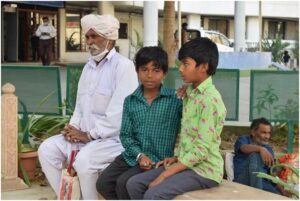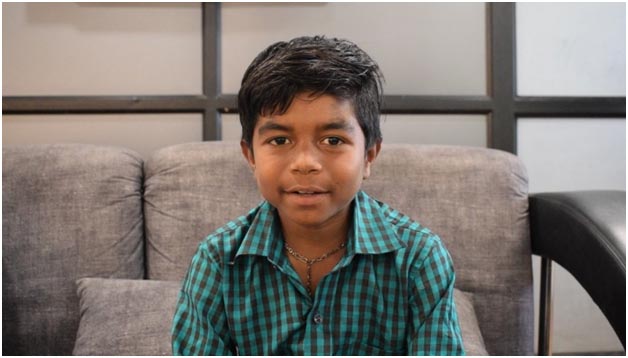NE HEALTH BUREAU
AHMEDABAD, APR 5
Wearing his contagious smile and snazzy sneakers, 13-year-old Yash walks-in gingerly into his paediatric consultation chamber. He is on a day’s trip to Ahmedabad for a medical check-up at Institute of Kidney Diseases and Research Centre (IKDRC). A routine he follows since 2018, when he was diagnosed with chronic kidney failure.

Within a year after diagnosis, Yash had a successful transplant with a kidney donated by his father. But the joy was short-lived for parents. He suffered a bout of nephrotic syndrome within a day, a rare reoccurrence in transplanted kidney. “It was a tough clinical battle for us to reverse the situation when everyone was almost sure that transplanted kidney would ultimately fail,” said Dr Anshuman Saha, Assistant Professor and Paediatric Nephrologist at the institute attending to Yash.
Yash was left with only option of ‘plasmapheresis’ – an extremely costly therapy. Plasmapheresis is a specialized method of removing blood plasma from the body by withdrawing blood, separating it into plasma and cells, and transfusing the cells back into the bloodstream. It is performed exclusively to remove antibodies in treating autoimmune conditions. But there was no other choice except to go for ‘super expensive’ therapy.
“We were confident that transplanted kidney would respond positively but weren’t sure about timelines,” explained Dr Saha. With pray on lips and in the hope of a positive outcome, Yash’s parents with the help of IKDRC paediatrics went ahead the therapy.
After as many as fifty (50) plasmapheresis sessions, the transplanted kidney began responding positively. A huge sigh of relief for Yash and his parents. And a moment of joy and catharsis for IKDRC paediatrics. Yash’s transplanted kidney now maintains a creatinine level of 0.6 mg/dl – a normal condition.
“Plasmapheresis usually costs upto US $2000 per session overseas but at IKDRC this therapy has been hugely subsidized through governmental and charitable support,” Dr Vineet Mishra, Director, IKDRC-ITS informed.
Despite huge subsidy, the cost for each plasmapheresis session still hovers around Rs 15,000 per session. IKDRC incurred an expense of Rs 25 lakh for kidney transplant, post-transplant care, medicine and 50 plasmapheresis sessions throughout Yash’s treatment. Belonging to a peasant family from Sonpara village of Gir-Somnath district in Saurashtra it was not possible for Yash’s parents to foot the huge medical bill.
“The family was absolved from the burden of paying after arrangements were made to cover the entire expense of treatment under School health Programme,” Dr Mishra added.
According to Dr Mishra, the programme was especially designed and funded by the government of Gujarat for the treatment of complex ailments suffered by children under 18 years of age irrespective of socio-economic condition of the family.
“Any domicile of Gujarat from any strata of society can avail benefits of this scheme without paying a single rupee for paediatric renal diseases at IKDRC,” said Dr Mishra.









